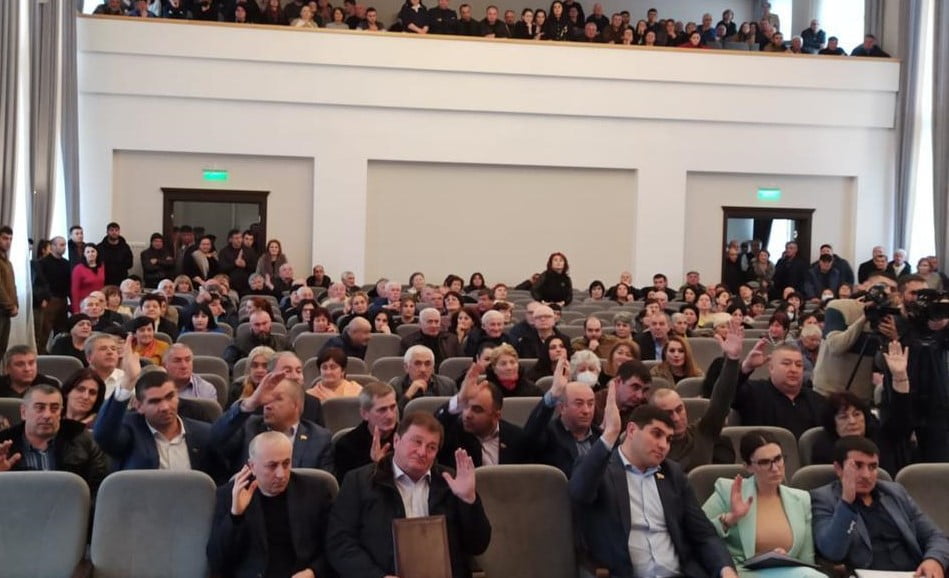The occupied Tskhinvali Region/South Ossetia’s legislature adopted on February 16 amid a five-month-long legislative crisis “the 2021 state budget,” setting the overall budgetary revenues at RUB 7.7 billion (USD 104 million), of which 81.8 percent is to be funded by the Russian Federation.
As the RES news agency reported, the Kremlin-backed Tskhinvali authorities adopted the budget with a majority of 18 votes despite the absence of a quorum, requiring 23 votes of the total 34 “MPs.”
Tskhinvali authorities stressed the vote was “still lawful,” claiming that the legislative requirement for a quorum “had no legal force” in the first place, as it had not been published in the “state” newspaper “South Ossetia.”
Pyotr Gassiev, “parliament vice-speaker”, clarified that any normative document comes into legal force only after its publication in the “state” newspaper.
RES also cited Gassiev as saying that in this case, the occupied region’s lawmakers “are guided by the Russian legal norms, affirming that the law is adopted by a majority of MPs.”
“MPs” of the occupied region were forced to explore legal loopholes in the “state regulations,” as Tskhinvali has been dealing with the legislative crisis since September 2020, when 17 South Ossetian opposition “lawmakers” suspended their mandates.
The boycotting “MPs” vowed not to return to their duties unless Tskhinvali leader Anatoly Bibilov dismissed “prosecutor general” Uruzmag Jagaev and initiated a fair investigation into the alleged torture-death of young inmate Inal Jabiev.
The region’s budget for 2020 amounted to RUB 7.58 billion (USD 118 million), of which RUB 6.22 billion (USD 97 million) was transferred from Moscow. RUB 4.72 billion (USD 73.5 million) of Russian subsidies was spent on the region’s “socio-economic development,” while the remaining RUB 1.5 billion (USD 23.4 million) was used for implementing “the investment program.”
This post is also available in: ქართული (Georgian) Русский (Russian)

